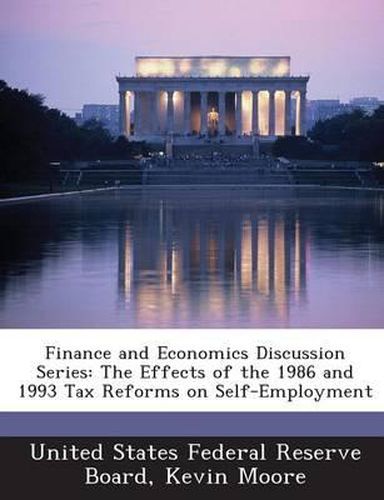Readings Newsletter
Become a Readings Member to make your shopping experience even easier.
Sign in or sign up for free!
You’re not far away from qualifying for FREE standard shipping within Australia
You’ve qualified for FREE standard shipping within Australia
The cart is loading…






This paper adds a new dimension to the literature that uses individual level data to assess the effects of tax policy on self-employment. Specifically, this study uses repeated cross-section data from the Surveys of Consumer Finances (SCF) against the background of the tax reforms of 1986 and 1993 to gauge the influence of taxes on self-employment. Using the 1986 and 1993 tax rate reforms as natural experiments allows for the identification of the effect of taxes on the choice to become self-employed. The findings of this paper indicate that marginal and average tax rates are negatively related to the propensity to become self-employed. However, these effects are only significant for the 1986 tax reforms and are sensitive to the model specification. Other factors, such as education, industry, wealth, and attitude toward risks, are consistently more important influences on the choice to become self-employed.
$9.00 standard shipping within Australia
FREE standard shipping within Australia for orders over $100.00
Express & International shipping calculated at checkout
This paper adds a new dimension to the literature that uses individual level data to assess the effects of tax policy on self-employment. Specifically, this study uses repeated cross-section data from the Surveys of Consumer Finances (SCF) against the background of the tax reforms of 1986 and 1993 to gauge the influence of taxes on self-employment. Using the 1986 and 1993 tax rate reforms as natural experiments allows for the identification of the effect of taxes on the choice to become self-employed. The findings of this paper indicate that marginal and average tax rates are negatively related to the propensity to become self-employed. However, these effects are only significant for the 1986 tax reforms and are sensitive to the model specification. Other factors, such as education, industry, wealth, and attitude toward risks, are consistently more important influences on the choice to become self-employed.